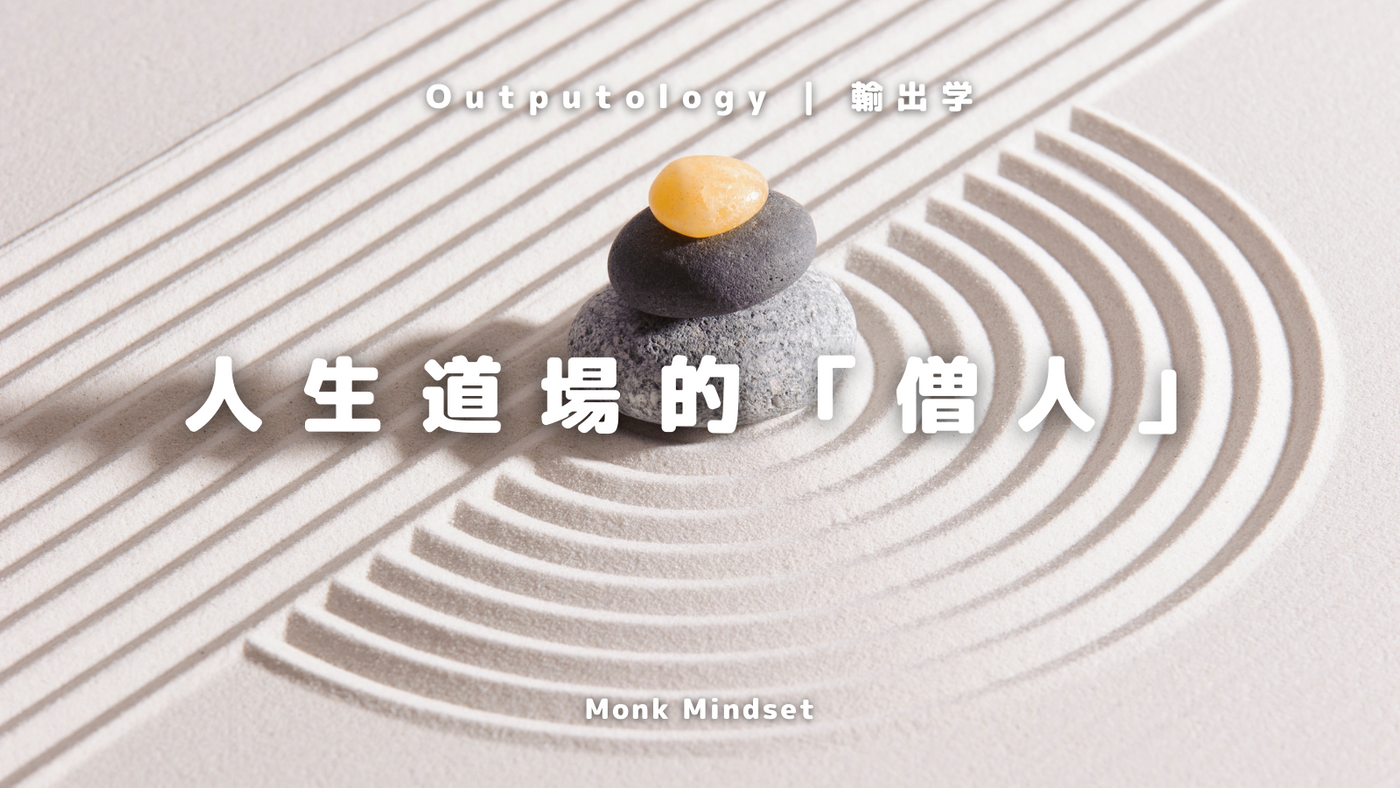034|We are all "monks" in the dojo

The author of this book, Jay Shatty, has a great background. His unusual personal experience and influence on social media have made him hailed by the media as "a spiritual mentor in the digital age." Well, this article is not about spending space on the author introduction and then urging you to place an order to buy it with the promise that it will make a huge difference in your life.
Here, I would like to sincerely invite you to think about:
How can we have the peaceful and abundant inner energy of monks?
How can we spend each day happily and meaningfully like a monk?
The answers to the above two questions are not necessarily related to "renunciation" . To live another person's life is not just to imitate the behavior of a certain type of person, but to understand why they behave the way they do in these moments. Knowing how they think, how they feel, and how they build their own habitual responses is the only way to truly learn their behavior .
I think the author wants to express: Anyone can have the mind of a monk, and can meaningfully practice their own life meaning in any environment. Life is our dojo, and we are all "monks (practitioners)" in this dojo.
Although the Chinese title of this book translates to "Mindset" , I prefer to translate Monk Mindset to "Monk Mindset" . I always feel that "mindset" cannot fully cover the meaning of Mindset, and "mind" refers to the thinking system established entirely through one's own active learning.
What many people don't know is that our minds can be set in a deliberate way (Mindset = Set your mind) . Self-cultivation of "self-awareness" is the first step in setting the mind, and it is not unreasonable that the author spends a lot of energy on the benefits of meditation and breathing exercises .
You can't solve a problem with the mind that created it, you can't fill a glass with more water when it's almost full, you can't light a candle in an airtight container. The author proposes a very simple mental model in the book, Stop, Spot, Swap (stop, identify, switch). But like all simple truths that are actually very hard to practice (think why you can’t save money), trying to stop negative thoughts is actually the most critical step in reversing your mental model.
I like the word "mind" , and it also means that it has a meaning of "wisdom" . "Wisdom" includes knowledge, thinking and matching skills . It is a comprehensive manifestation of a person's words and deeds. It reminds me not to fall into any one dimension. Don't over-input knowledge without focusing on output, don't over-rely on theory without practice, don't over-rely on technology without thinking about the rationale behind it.
The main purpose of this book is to first take you into a strange world of monks, and then bring you back to real life to find the connection between the two. The life of monks is essentially no different from ours! After reading this book, only the first small step of "mental knowledge input" has been completed. Don't expect yourself to subvert some of your innate "thinking inertia" only by "reading" , just as any new knowledge we learn requires a lot of practice and consolidation . Reading this book is just the beginning.
The book lists many "monk practices " that you can do without being a monk, such as meditation, breathing awareness, ego identification, gratitude exercises, testing your Vedic caste (and your favorites), reshaping your relationship with you. The connection of the world, redefining "love"... It is more like a "life instruction manual" that you can carry with you. Turning any page, you can immediately get inspiration for practice .
If you want to have a peaceful and meaningful life, you really don't need to go to the mountains to become a monk. Just as the author left the dojo three years after becoming a monk and returned to modern society, exploring and practicing his own "dharma" (or his own ikigai) with his own actions.
Who says life isn't our "dojo" all the time?
Find your own Dharma and practice it.
Develop your own "Monk Mind" and then feed it.
May everyone become a better version of themselves and gain peace and love.
📖 Book link: https://www.books.com.tw/products/0010870627
about me:
A roast chicken that lives in the southern hemisphere.
Export Studies Instructor, ICF Certified, Member ID #009600446I
Committed to promoting the "output" thinking system, and using "output" to promote the growth of more people.
The topics I focus on are: self-growth, self-compassion, gay issues, building a personal brand, workplace transformation, and anything that can make you a better version of yourself.
Contact me: milagro0828@gmail.com
Like my work? Don't forget to support and clap, let me know that you are with me on the road of creation. Keep this enthusiasm together!

- Author
- More